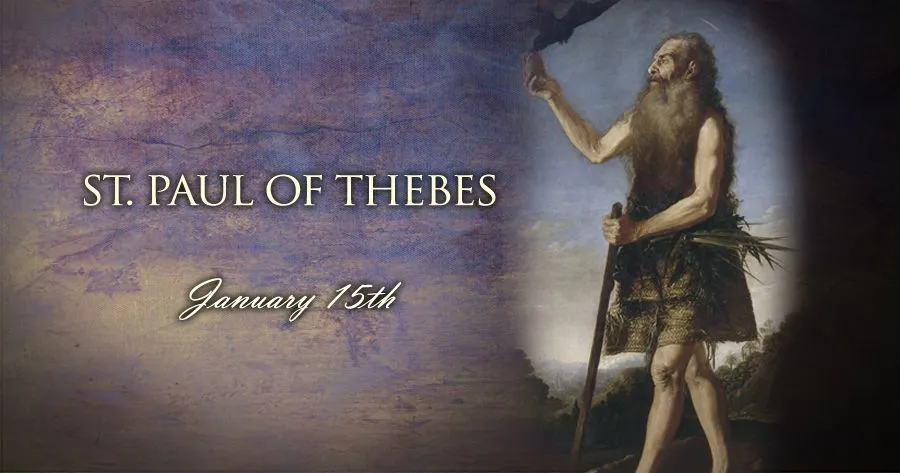Sub-Saharan Africa, 15 January, 2024 / 11:15 am (ACI Africa).
On Jan. 15, the Catholic Church remembers Saint Paul of Thebes, whose life of solitude and penance gave inspiration to the monastic movement during its early years.
Surviving in the Egyptian desert on a small amount of daily food, St. Paul the Hermit lived in close communion with God. Before the end of his life at age 113, he met with St. Anthony the Great, who led an early community of monks elsewhere in the Egyptian desert.
Born in approximately 230, the future hermit Paul received a solid religious and secular education, but lost his parents at age 15. During the year 250, the Roman Emperor Decius carried out a notorious persecution of the Church, executing clergy and forcing laypersons to prove their loyalty by worshiping idols. The state used torture, as well as the threat of death to coerce believers into making pagan sacrifices.
Paul went into hiding during the Decian persecution, but became aware of a family member's plan to betray him to the authorities. The young man retreated to a remote desert location, where he discovered a large abandoned cave that had once been used as a facility for making counterfeit coins. He found that he could survive on water from a spring. A raven brought him half a loaf of bread daily.
Forced into the wilderness by circumstance, Paul found he loved the life of prayer and simplicity that it made possible. Thus, he never returned to the outside world, even though he lived well into the era of the Church's legalization and acceptance by the Roman Empire. Later on, his way of life inspired Catholics who sought a deeper relationship with God through spiritual discipline and isolation from the outside world.







